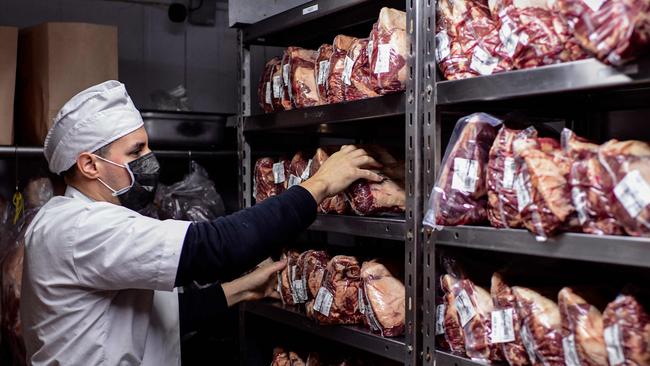Beef trade: How Argentina’s export ban could impact China and Australia
The next month is pivotal for beef prices, following a snap decision from Argentina, which could have repercussions for both Australia and China.

It may be too soon to gauge the impact Argentina’s ban on its beef exports and the knock-on effect it will have for Australian-Chinese trade relations.
Argentina announced last week it would limit its shipments of beef in a bid to contain price inflation.
With Argentina a key exporter of red meat, the move could affect the amount of red meat China imports from Australia, despite strained relations between the two nations.
Rabobank senior animal proteins analyst Angus Gidley-Baird said the news could throw a “spanner in the works” across the global protein market.
“Argentina is no small supplier. For that to stop, it will create a bit of a shock,” Mr Gidley-Baird said.
Mr Gidley-Baird said the snap ban may be short enough for the world to absorb the shock.
“We might see a spike in volumes out of the US, and a little out of Australia,” he said.
According to Rabobank data, Argentinian beef exports to China last year were up 28 per cent on 2019 volumes, but in the first three months of this year rose by 19 per cent.
China accounts for about 74 per cent of Argentina’s beef exports. In contrast, Australian beef exports accounted for almost 18 per cent of China’s bovine meat imports in 2019.
Australian beef exports into China were down 55 per cent in April this year compared to the same time last year, with overall exports down 22 per cent.
However, whether this decline is attributable to China’s suspension of a number of Australian abattoirs last year or the combination of high domestic cattle prices and tighter supply remains unclear.
“China is a more price-sensitive market. We have seen in the past when our prices go up, our volumes into China goes down, “ Mr Gidley-Baird said.
“Record cattle prices means higher beef prices, but there’s also a volume issue here, as we don’t have the volumes available.”
He said the interesting question was whether Argentina would extend the ban if more and cheaper beef was not delivered to its consumers.
AACo boss Hugh Killen last week said the outlook for red meat globally had lifted due to the Argentinian ban, with an immediate movement in prices. He said the prices could go higher in the next six months.
MORE
SHORTHORNS: HOW THIS NICHE BREED COULD BENEFIT YOUR BUSINESS


